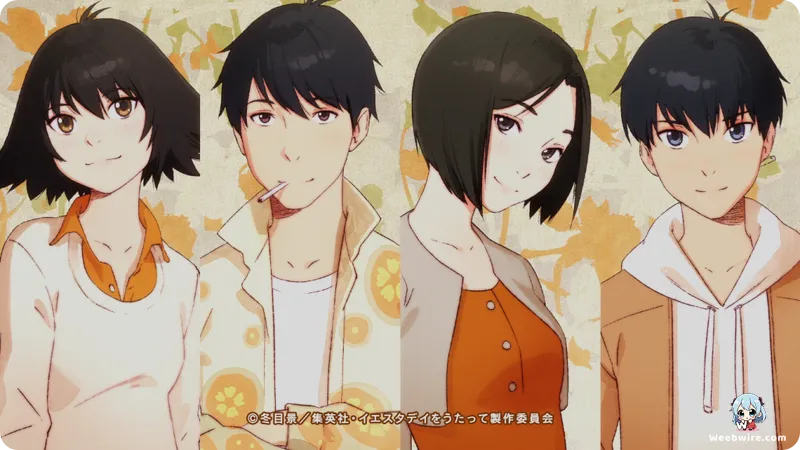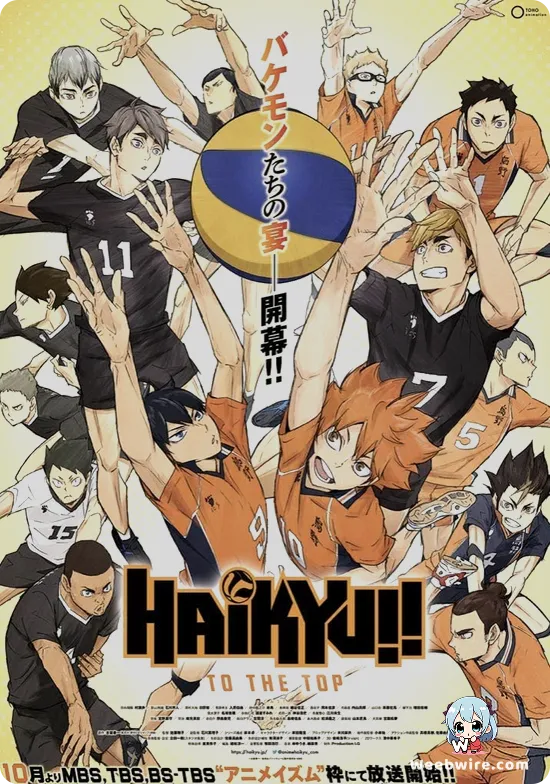Beyond the Ordinary: Unpacking the Enduring Appeal of 'SING "YESTERDAY" FOR ME' and Doga Kobo's Cinematic Triumph

In an anime landscape often defined by high-octane action and fantastical escapades, SING "YESTERDAY" FOR ME, released in 2020 by Doga Kobo, stands as a poignant and deeply human drama. It consciously avoids grand narratives, instead delving into the quiet, often messy realities of young adulthood. This series captivated audiences not with flashy visuals, but with its raw honesty and introspective exploration of love, loss, and the daunting journey of self-discovery. Its authentic portrayal of life's subtle complexities resonated deeply with viewers.
A Glimpse into Post-Graduation Realities
The compelling narrative centers on Rikuo Uozumi, a relatable university graduate adrift in a part-time convenience store job, struggling with ambition and direction. His inertia and indecision mirror the anxieties of post-graduation life, presented with a grounded realism that illuminates the quiet desperation for meaning. This focus on the unglamorous everyday is a refreshing departure from typical anime tropes.
Navigating Complex Relationships
A palpable sense of bittersweet melancholy permeates the series, even within its romance and slice-of-life framework. Characters grapple with unrequited love, past regrets, and uncertain futures. Haru Nonaka, the free-spirited, crow-toting girl, introduces an energetic yet complex dynamic, masking deep loneliness and unwavering affection for Rikuo. Shinako Morinome, Rikuo's university friend and former crush, embodies the lingering shadow of past relationships and the difficulty of moving on. The anime offers no facile resolutions, allowing characters to slowly and authentically navigate their emotional landscapes a testament to its maturity.

Doga Kobo's Unexpected Masterpiece
Surprisingly, Doga Kobo, known for vibrant, comedic anime like New Game!, produced this grounded drama. Their expertise in character animation, typically used for expressive comedic reactions, was masterfully repurposed to convey subtle emotional shifts through nuanced facial expressions and body language. This showcased the studio's remarkable versatility. The animation, while understated, perfectly captures the characters' quiet despair and burgeoning hope, significantly enhancing viewer immersion.
Faithful Adaptation and Evocative Sound
Based on Kei Toume's manga, which ran for an impressive 18 years (1998-2017), the anime adaptation is widely praised for its faithfulness to the original's tone and deliberate pacing. Fans commend its respect for the slow burn of relationships and the gradual unfolding of emotional journeys, recognizing Toume's unique ability to convey complex emotions through subtle visual cues. The evocative soundtrack further enhances the mood with melancholic piano and acoustic guitar, underscoring emotional weight without overpowering.
The Power of Ambiguity
The series' open-ended conclusion, leaving some futures ambiguous, mirrors real-life uncertainties. This deliberate choice reinforces its commitment to realism, acknowledging that life's narratives rarely tie up neatly. For many, this ambiguity was a profound strength, fostering deeper engagement. SING "YESTERDAY" FOR ME stands as a powerful testament to quiet storytelling, inviting viewers to empathize with characters navigating everyday anxieties and quiet longings, transforming them into a beautifully crafted narrative that resonates long after the credits roll.
Credits
SING "YESTERDAY" FOR ME
Author
Kei Toume
Cover Art
Kei Toume
Studio
Doga Kobo
Publisher
Shueisha
Producers





